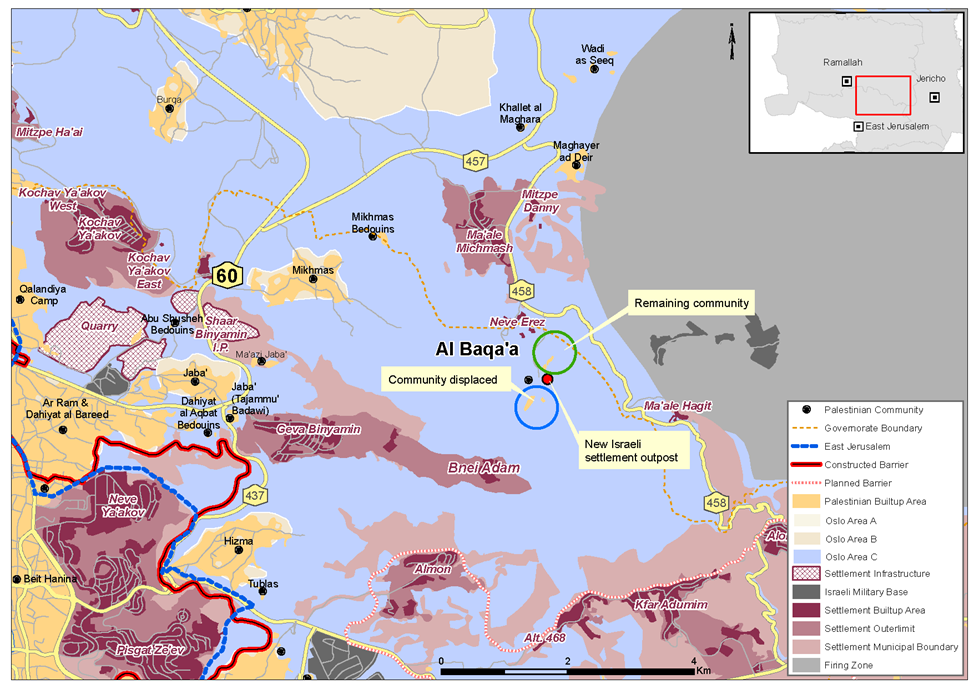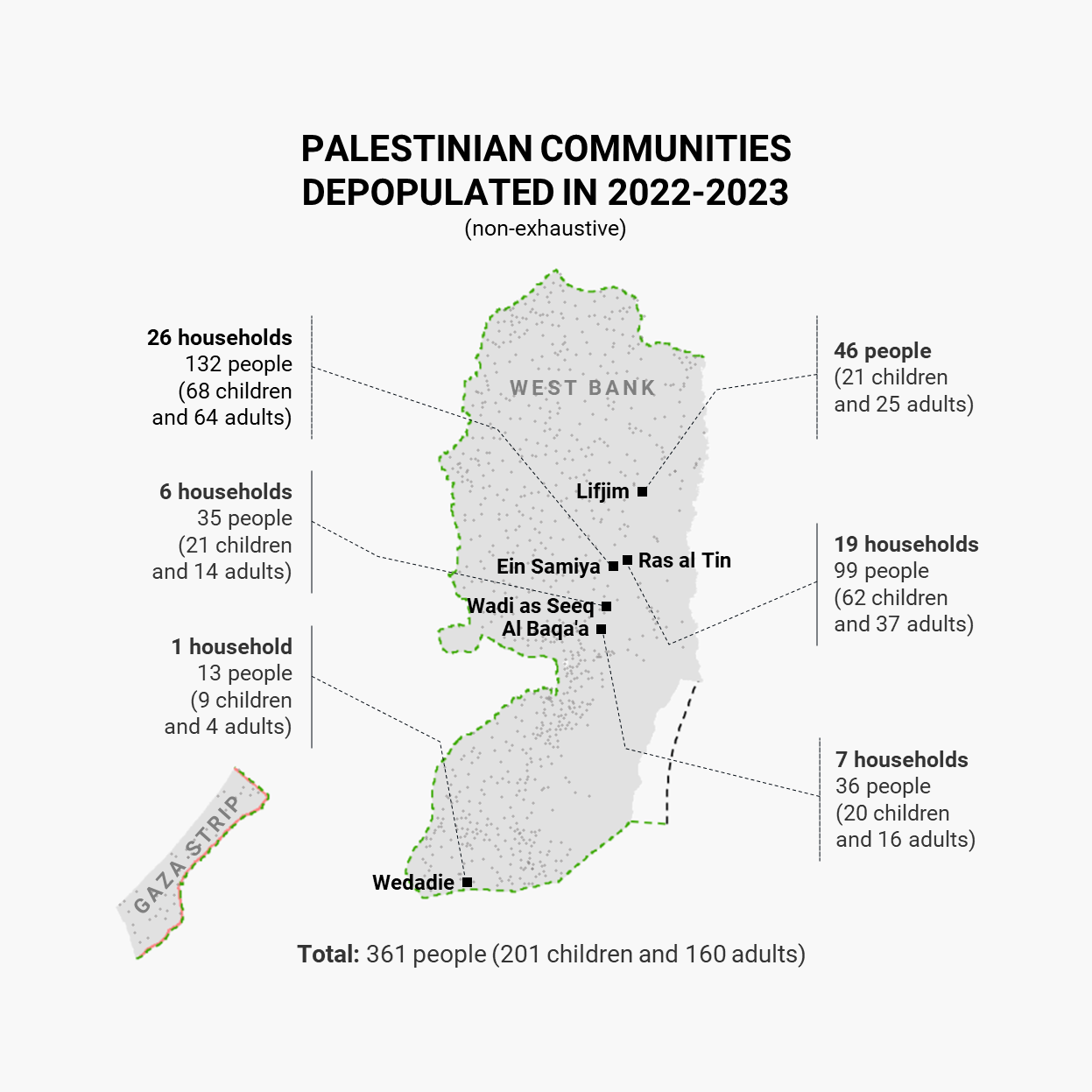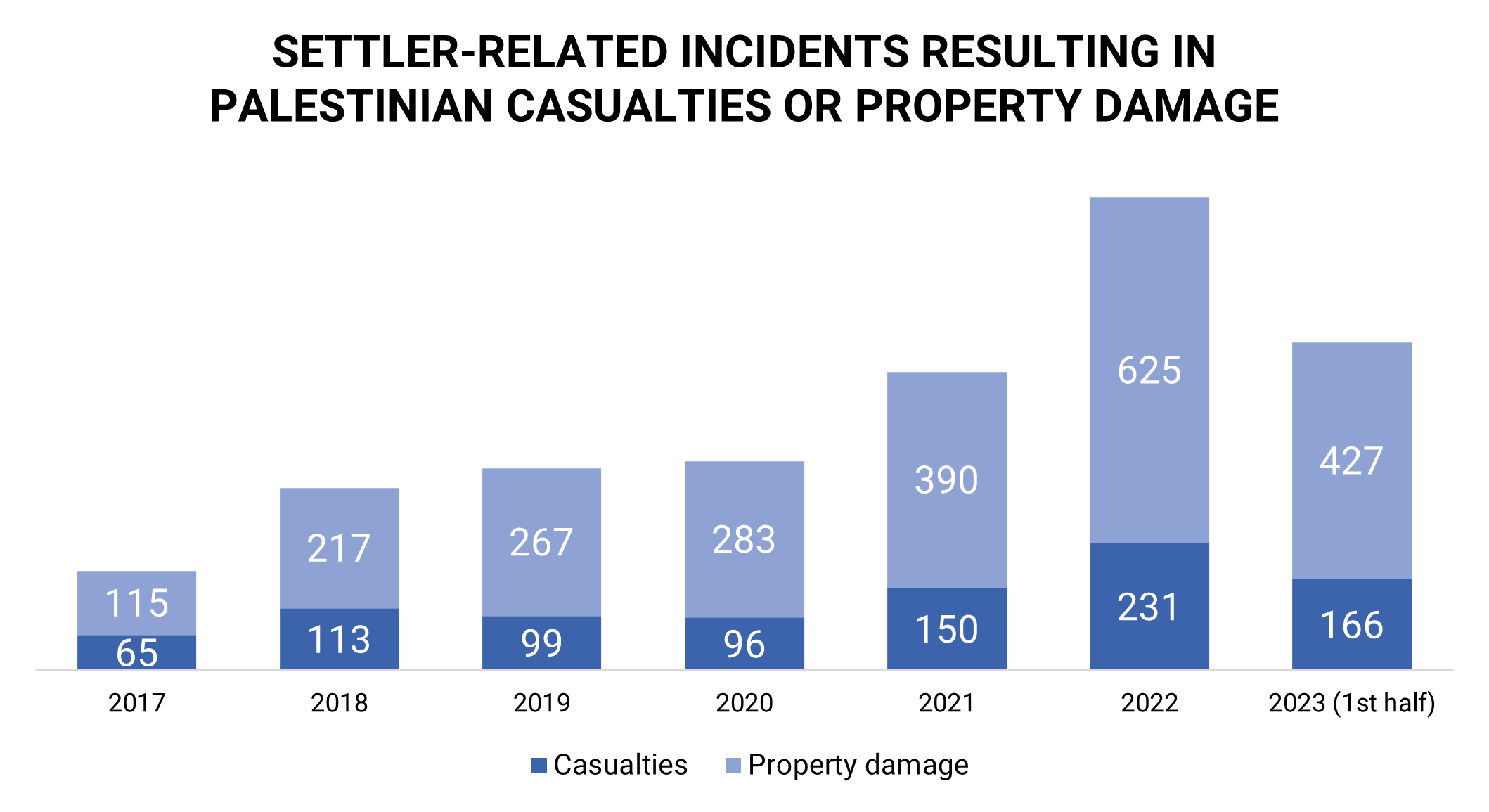Palestinian Bedouin community seeks safer grounds amid settler violence
* Update: On 28 July, shortly after the publication of this article, the remaining two families left Al Baqa’a, leaving only the newly established Israeli settlement where the Palestinian community once stood.
The Palestinian community of Al Baqa’a is on the brink of vanishing, and not by choice.
On 10 July 2023, following the establishment of an Israeli settlement within the community and increasing settler violence, seven Palestinian households dismantled their homes and livelihood structures, and left their community. These 36 people – comprising 20 children, eight women, and eight men – represented two thirds of the community.
This Israeli settlement had been erected on 20 June, in the centre of Al Baqa’a. Several other settlements were established across the West Bank that day, which followed the killing of four Israeli settlers by Palestinians elsewhere in the West Bank.
The presence of settlers in Al Baqa’a has caused fear among the Palestinian community. Community members have faced increasing limitations on grazing areas and have been prevented from accessing land, severely undermining their traditional herding practices and primary source of income.
On 7 July 2023, Israeli settlers set fire to a Palestinian home in the community, with two people inside. Neighbours successfully extinguished the fire, avoiding casualties, but the small house, home to six people, was destroyed, leaving them displaced. Instead of rebuilding their home in the same location, the family moved to somewhere they consider to be safer.

Other families have taken similar measures. When OCHA visited the community in 2015, it comprised 19 households, or about 128 people. On the eve of this latest development, in early July 2023, it comprised nine households, or 54 people. Now, only two households remain, comprising 18 people, including 11 children.
| Al Baqa'a community | 2015 | Early July 2023 | After 10 July 2023 |
|---|---|---|---|
| Households | 19 | 9 | 2 |
| People | 128 | 54 | 18 |
| Children (included above) | 65 | 31 | 11 |
Some of the families who left are now staying in a nearby location. However, on 20 July, Israeli forces warned one of the families that they must leave that location too, threatening to confiscate their structures and other belongings if they fail to do so.
All settlements are incompatible with international humanitarian law, and Israeli authorities have often refrained from removing settlements. Here, while the Israeli authorities have dismantled the settlement structures, settlers rebuilt and the settlement is still there at the time of writing.
The departure of families from Al Baqa’a is also not an isolated incident in the area. On 22 May 2023, 26 Palestinian households from the herding community of Ein Samiya, consisting of 132 people, including 68 children, left their community after a series of settler attacks and other coercive measures. Between 2022 and 2023, 134 Palestinians, including 83 children, were compelled to leave their communities of Wadi as Seeq and Ras at Tin in similar circumstances.

Israeli settler violence has been on the rise across the Palestinian territory. In 2023, up until the day the seven households left, OCHA had recorded 591 settler-related incidents throughout the West Bank that resulted in casualties or property damage. On average, this represents three incidents per day, up from two in 2022 and one in 2021.

Following such attacks and after incidents resulting in displacement, OCHA teams carry out initial assessments of people’s needs, and alert humanitarian partners to any further assessments or response needed, so that no one is left behind.
But this should not be necessary. Beyond settlements' general incompatibility with international humanitarian law, settler attacks, demolitions, and other coercive practices typically observed in Area C and elsewhere in the occupied Palestinian territory have humanitarian consequences. Physical injuries, psychological trauma, and loss of livelihoods are a reality for the affected families. The displacement of communities due to a coercive environment, including due to settler violence, not only deepens humanitarian needs but may also amount to forcible transfer, which is a grave breach of international humanitarian law.










